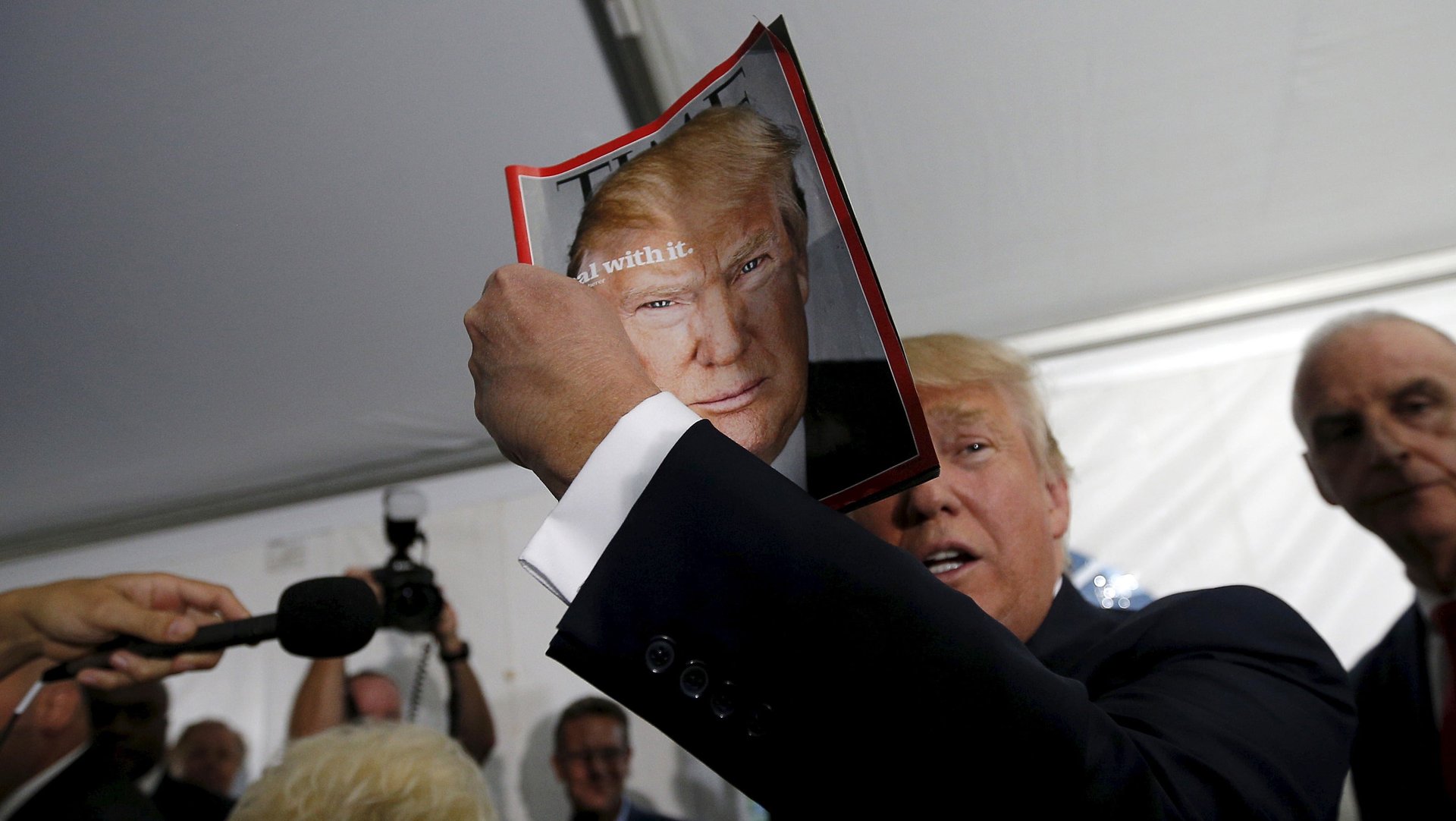There’s a better way to face down Trump’s presidency than just giving money to the liberal media
America’s biggest and most prestigious national publications spectacularly failed to predict Donald Trump’s presidential win last week. And whether or not that failure might have played a role in the election result itself, a lot of these papers and digital outlets—the majority of which tend to slant toward liberal viewpoints—are now reckoning with the fallout.


America’s biggest and most prestigious national publications spectacularly failed to predict Donald Trump’s presidential win last week. And whether or not that failure might have played a role in the election result itself, a lot of these papers and digital outlets—the majority of which tend to slant toward liberal viewpoints—are now reckoning with the fallout.
Across the internet, disgruntled readers spent last week mumbling about being misled and canceling their subscriptions. Then, a new movement emerged: one actively championing those publications all the more in light of Trump’s imminent presidency. On Twitter right now, users are urging one another to #SupportJournalism by donating to the local and national papers that may have suffered a blow last week.
Publications themselves, from local outlets to bigger operations like the Guardian and the New York Times, are calling for it, too—as are public figures like comedian John Oliver, who spent a good portion of his last show imploring viewers to give more money to journalism because it will be all the more important in the next few years following Trump’s “fucked-up” ascendance to the presidency.
Groupthink within liberal newsrooms and audiences has been mocked a fair amount. Saturday Night Live made an over-the-top skit out of it after the election (“My friend at the Huffington Post says she’ll win by five points”; I don’t know, my friend at Slate says she’ll win by three”). McSweeney’s wrote up a satirical list of other echo chambers to rival that of the liberal press, including the “gas tank of a Volkswagen Jetta” and the “coatroom at the MoMA.”
Campaigns to bolster journalism under Trump’s presidency are growing fast: according to Poynter, after John Oliver’s segment over the weekend, investigative outlet ProPublica, which usually gets a few scattered donations a day, had ”multiple donations per minute” coming in. The New York Times on Sunday even felt the need to personally inform the president-elect of apparently the real victor of Nov. 8, 2016:
Uplifting as it is to see an outpouring of post-election support for journalism at large, there’s truth to one reporter’s insight last week that America’s political discourse in 2016 seems to “be running on two self-contained, never-overlapping sets of information.” Yes, donating to ProPublica and other sources is a great idea. But it’s naive and misguided to believe that simply throwing money at a handful of news outlets, all of whom failed to see the election result coming, will serve you or the general public well.
If you’re a liberal reader upset by Trump’s presidency, consider why the Republican victory took you by such shocked surprise in the first place. Most likely, it’s because your news sources of choice were all plagued by the same problem. Both liberal US publications and Facebook—the latter of which could arguably also be called a media company no matter how hard it fights the label, grappled with the same issue—they carved out massive echo chambers that catered to their audience well, but only within the limits of their particular beliefs and ideals. And a flood of donations won’t change that.
As a reader, you’d be much better served to instead take it upon yourself to broaden your perspective:
- Look at Steve Bannon’s Breitbart News and other alt-right sites like it. Read through the crusading arguments on these news sites to not only better understand the viewpoints of the other side of America’s electorate, but also the world view of the rightwing media’s figureheads like Bannon, Trump’s new chief strategist.
- Take inspiration from Mother Jones editor James West and go through Facebook adding as many Trump voters and conservatives as you can. Force the platform’s algorithm to stop skewing entirely toward one political pole, a habit that various investigations have demonstrated (paywall).
- Donate to the Wall Street Journal, the Washington Post, whatever you’d like—but ask that your money come with a commitment, which some papers have already started to pledge, to ensure truly balanced and all-encompassing reporting.
That the in-depth and high-quality coverage of Trump’s upcoming stint in the White House will be crucial is undoubtedly true. As Quartz’s Christopher Groskopf noted last week, despite the barrage of complaints about the press’s failures this election cycle, media’s role in the next four years is to continue serving as America’s fourth estate, and to relentlessly “check the bearers of power.”
But to truly engage with Trump’s presidency, you need to find your way out of the echo chamber and confront everything that lives on the outside of it.